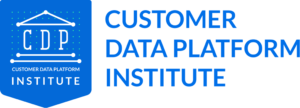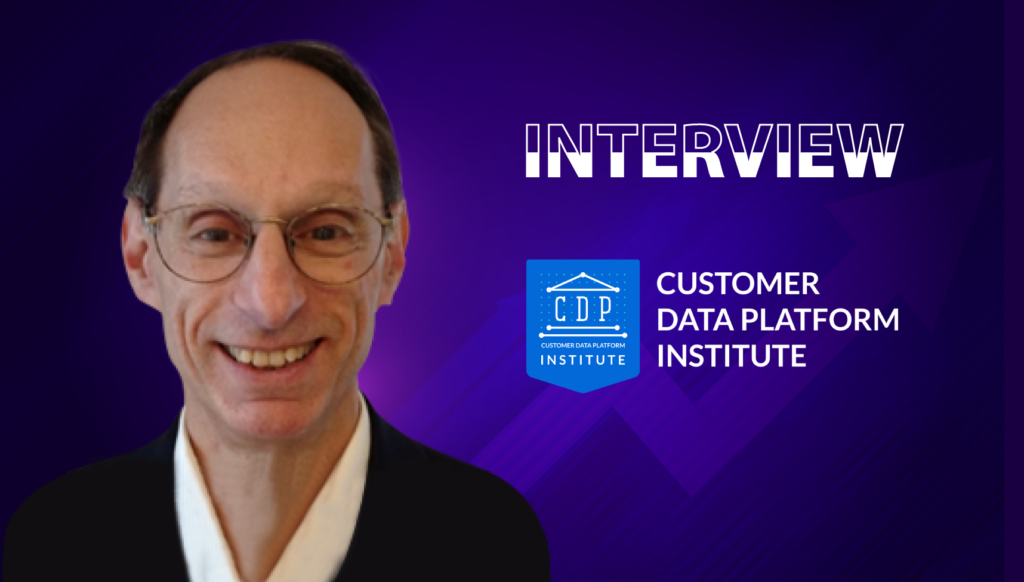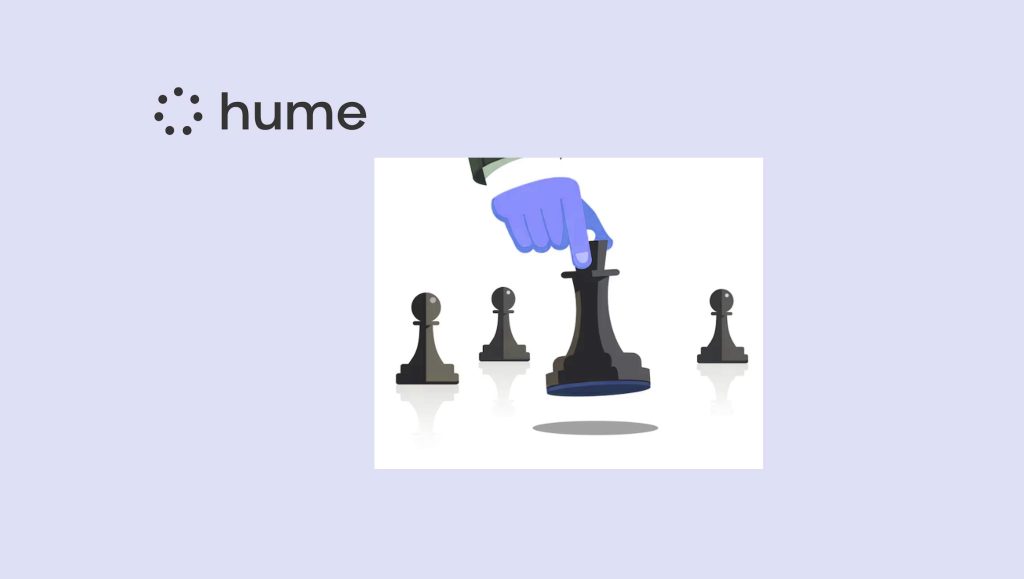Marketing technology expert, independent consultant and thought-leader on the subject of martech and analytics – David Raab joins us in this SalesTech Star interview to discuss the growing impact of CDPs in B2B Sales.
Can you tell us a little about yourself David (including your hobbies!) and your biggest sales and marketing takeaways from your journey so far?
My background is in traditional direct marketing, of magazines and continuities. I’ve spent most of my career as a consultant helping companies to select software and service companies that support marketing activities. I’ve learned a couple of things along the way: how much company culture determines what an organization can do (especially important to recognize in this era of ‘digital transformation’) and that the right business idea at the right time will succeed almost regardless of how well a company is managed.
Tell us a bit about The CDP Institute and the reason you started it.
The Institute is an extension of what I’ve been doing my entire career, which is helping marketers take advantage of technology. Customer Data Platforms are a particular class of software that only became possible with the convergence of ‘big data’ technology, online channels collecting lots of detailed customer data, and customer expectations for convenient, personalized experience. CDPs are one of those ideas whose time had come, which is why the industry grew so quickly. I started the Institute at the request of some of the vendors, who saw a need to promote the category more broadly than any single vendor can do on their own.

According to you, should sales teams be more conscious of customer experience? What are some of your favorite customer experience strategies in B2B?
This is one of those areas where culture shines through: some sales organizations have always really worked to keep current customers happy, while others were always focused on acquisition. Today, everyone at least recognizes the need for a great customer experience across the entire life cycle. In some cases, this means creating separate customer success teams that take over account management after acquisition; in other cases, sales retain that responsibility. I’d say either approach can work so long as someone is held responsible for customer success and given the tools to track experience and the authority to act as needed to keep customers happy. Good strategies to support this are things like strong training and onboarding programs, regular account reviews to ensure each customer is using the product effectively, and centers of excellence to identify and propagate successful practices.
Read More: SalesTech Star Interview With Jim Dickie, Research Fellow At Sales Mastery
What are some of your tips for Sales teams to optimize use of CDPs?
The core value of a CDP is to combine data from multiple systems. Sales teams tend to live in CRM, which sees only some customer data. So the main tip for sales teams is to ensure that they actually use the non-CRM data assembled by their CDP, which means looking for things like intent in Web traffic or responses to marketing emails. The trick is making the CDP data easily accessible, usually by embedding it within the CRM interface, by processing it automatically to bring important items to each sales person’s attention, and by making recommendations based on the information. In other words, assembling the data is the first step but you only get real value by adding analytics to make it actionable without costing salespeople too much time.
Account-based Marketing has seen enough fanfare so far in B2B martech, what are your top thoughts/tips on Account-based Selling?
Account-Based Selling is what all good sales organizations have always done. It’s aligning that with marketing that makes ABM important, because marketing departments haven’t always been oriented around accounts. The most important tip is to ensure that information about individuals associated with an account is aggregated to give sales people a complete account-level view. This can create insights that are invisible when you only look at the individual contacts separately.
What are your thoughts on the future of sales/salestech and its adoption patterns? How do you eventually see salestech play a role in the future role of the typical B2B/sales professional?
Our world is already dominated by tech: try to take away a sales person’s smartphone and see what happens. Salespeople have come to expect consumer-grade power and simplicity in their tools, which are very hard to deliver. So we’re still in a transition period as salestech interfaces catch up with the underlying capabilities to gather, unify, analyse and present customer and prospect data. As that happens, salestech will be less of a tool and more of a guide and coach.
Read More: SalesTech Star Interview With Marta Aserigadu, Head Of Strategic Partnerships At Talent Alpha
What’s your smartest sales/marketing/leadership/productivity hack that you’d like to share with the audience?
Maybe this goes against the grain, but I’m a firm believer in focusing on one thing at a time. Concentration is so important to getting things done efficiently, and I see so many people get distracted by interruptions from email, messaging, social media, and the rest. It takes discipline to ignore your phone for several hours but if you don’t, you’ll never have time to do things that are most important.
Tag (mention/write about) the one person in the industry whose answers to these questions you would love to read!
I’m a big fan of Brent Leary, who offers a great mix of knowledge about tech and sales.
Your favorite Sales/SalesTech/Customer Data quote.
I can’t think of any. Guess I need to get out more.
Tell us about some of the top sales/salestech/other events that you’ll be participating in (as a speaker or guest!) in 2020!
I’ll certainly be at the MarTech Conferences in San Jose and Boston. Also TFM and probably MTEX in London and other events in Asia.
______
Don’t Miss!
Listen in to The SalesStar Podcast episode with David Raab where David discusses his thoughts on SalesTech and the Future of Customer Data Platforms.
Read More: SalesTechStar Interview With Ken Ferguson, SVP Of Global Sales At Visier

The CDP Institute is a vendor-neutral organization that educates marketers about the issues, methods, and technology used to manage customer data, with a special focus on Customer Data Platforms.
David Raab is Founder and CEO of the Customer Data Platform Institute, a vendor-neutral organization that educates marketers and technologists on making the best use of customer data. The Institute publishes a rich collection of vendor comparisons, white papers, directories, blogs, newsletters, and other information at The CDP Institute. As a consultant, Mr. Raab has helped hundreds of companies to select, deploy, and operate marketing systems. He named the Customer Data Platform category in 2013.





















